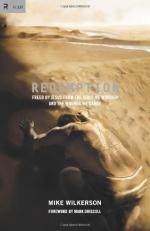|
This section contains 6,562 words (approx. 22 pages at 300 words per page) |

|
The death of Jesus of Nazareth by crucifixion and his resurrection on the first day of the week constitute the root paradigm of Christianity and, as such, are central to Christian worship in all its dimensions. Because that death and resurrection occurred at Jerusalem at the time of the Jewish Passover (Heb., Pesaḥ; pascha in the Greek transliteration of the Aramaic), this paradigm is frequently referred to as "the paschal mystery." Paul's First Letter to the Corinthians (5:7) identifies the death of Jesus with the sacrifice of the Passover lambs, and that same identification is made in the Gospel of John (19:32–36 refers to the prohibition against cracking the bones of the lamb eaten at Passover). References in early Christian literature to the Cross or to the death of Jesus should most frequently be understood as including Jesus' resurrection and glorification, the total paschal mystery as that paradigm...
|
This section contains 6,562 words (approx. 22 pages at 300 words per page) |

|




